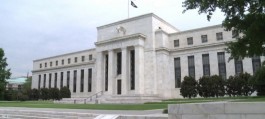The record highs seen in Japanese stocks earlier this year appear to be a distant memory, as foreign investors sell shares amid the country's slowing economy.
Citigroup and Aberdeen (abrdn) are among banks that have become more bearish on Japanese stocks, as the outlook for corporate governance reform and the Bank of Japan’s monetary policy remain unclear. A Bank of America fund manager survey showed about a third of those surveyed believe the market has peaked.
Foreign investors, who helped push Japanese stocks to an all-time high just a few months ago to outperform their overseas peers, were net sellers for the fourth straight week ended June 14. It was the longest selling streak since September, according to data from the Tokyo Stock Exchange.
Japan’s Nikkei 225 has suddenly stopped rising since hitting an all-time high on March 22. It’s fallen 5.6% since then. By comparison, the MSCI Asia Pacific Index has gained 1% over the same period, while the S&P 500 has gained 4.4%.
Hebei Chen, an analyst at IG Markets, said the optimism in Japanese stocks earlier this year had hit a speed bump, adding: “Investors are facing a profound question about whether the drivers of Japanese stocks are sustainable.”
Foreign sales
Factors that had previously supported Japanese stocks are starting to weigh on the market. Foreign investors, who have been flocking to the country’s financial market as a result of Japan’s unprecedented efforts to improve shareholder values, are now selling, pulling out a net 250 billion yen ($1.6 billion) of Japanese equity investments in the week ended June 14, according to data from the Tokyo Stock Exchange.
Japanese stocks are at significant risk of a correction, and it will likely take some time before positive factors emerge, according to Citigroup analysts including Ryota Sakagami.
weak yen
Investors have become wary of the yen’s continued decline. While they have in the past welcomed a weaker currency as a boon for exporters, the recent decline in the yen has highlighted its potentially damaging effects on the Japanese economy, including increased inflationary pressures.
The yen fell on Friday to near 160 against the dollar, a level not touched since April, prompting Japanese currency officials to warn against excessive moves in the foreign exchange market.
“We would like to see a bottoming out of this weak yen trend, as it benefits the domestic economy,” Aisa Oguchi, of JPMorgan Asset Management, told Bloomberg TV.
But despite the recent slowdown in stocks, many strategists including those at BlackRock and Morgan Stanley remain optimistic about Japan’s long-term outlook, citing structural changes including institutional reforms, domestic investment and wage growth.
Japanese interest rate hike expectations
Investors will be closely watching whether the Bank of Japan will go ahead with a second interest rate hike in July, after raising them in March for the first time since 2007. The Topix banking index has risen 30% this year, nearly double the overall Topix gain, on expectations that higher borrowing costs will help financial institutions improve their credit margins.
But bets that the Bank of Japan might be slow to raise rates have weighed on lenders recently, with the bank index down 5.2% this month compared with a 1.7% decline in the Topix for the year. The monetary authority surprised market players earlier this month by delaying its plan to taper bond purchases until July. Swap rates imply that the odds of a July rate hike have fallen to about 28% from about 66% at the start of the month.
David Chu, multi-asset and investment manager at Edinburgh-based Bank of Aberdeen, favours Chinese and Indian stocks over Japanese ones over the next three to six months.
In an interview, Chu said his bank expects the right policy moves to help emerging markets China and India attract capital inflows. As for Japan, he said foreign investors may need to see more progress on corporate governance reform before they can pour more money into the market.







































